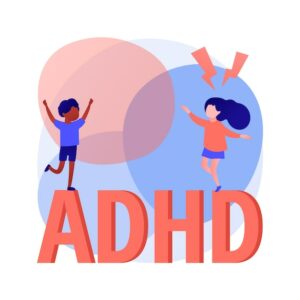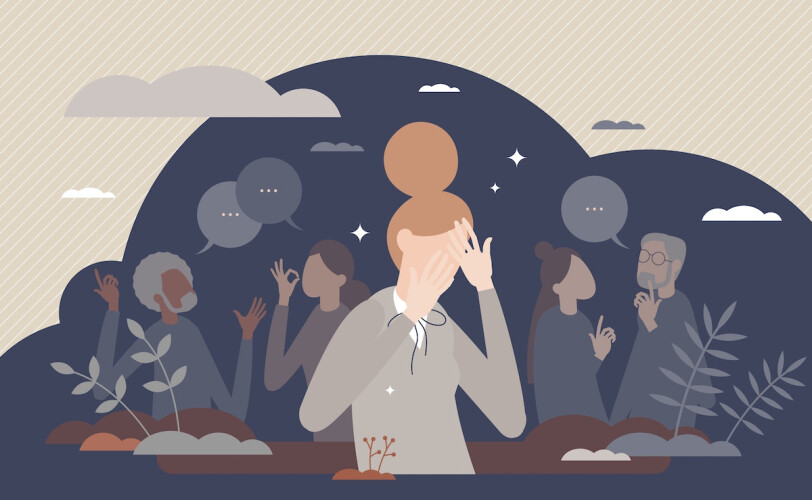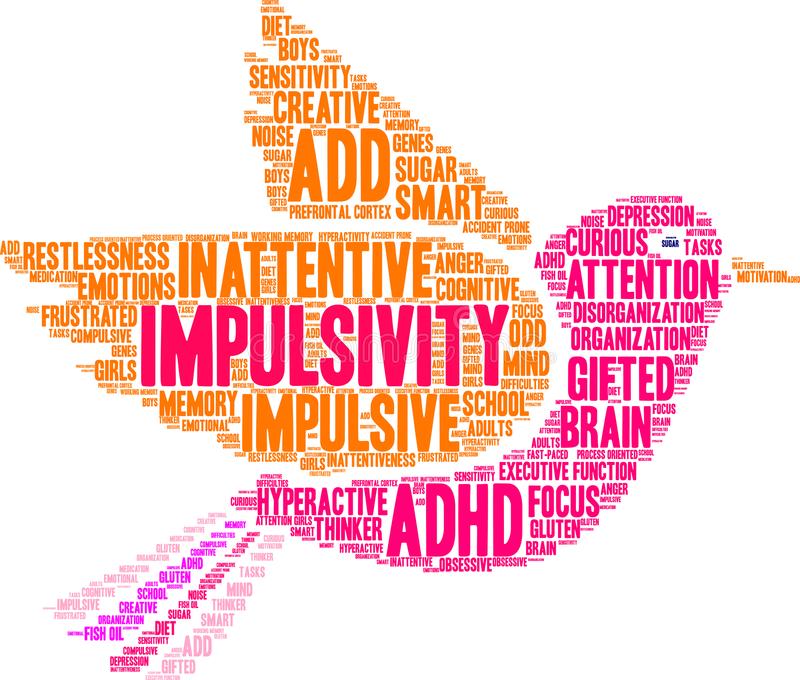Adhd is one of the most commonly diagnosed mental health conditions in the US. While there is no one-size-fits-all answer to managing this condition, there are some general tips that can help. In this article, we’ll explore how impulsive ADHD affects both the person with ADHD and those around them, and we’ll provide tips on how you can best deal with this disorder.
Contents
What is Impulsive ADHD?

There is no one answer to this question as people with impulsive ADHD can experience a wide range of symptoms. However, some of the most common include: feeling restless and constantly on the go, having trouble staying focused, making careless decisions, and having trouble controlling emotions.
While there is no one-size-fits-all approach to managing impulsive ADHD, there are steps that can be taken to help manage the condition. First and foremost, it is important to recognize that ADHD is a disorder and not a character flaw. People with impulsive ADHD need support and assistance to function properly. They should also be encouraged to seek out professional help if they are struggling with their symptoms.
What Causes Impulsive ADHD?
There is no one answer to this question since it can vary from person to person. However, some of the more common causes of impulsive ADHD include a genetic predisposition, ongoing stressors, and exposure to toxins or allergens.
Some of these causes are:
Genetics
Sometimes genetics play a role in the development of impulsive ADHD. This means that some people are simply more likely to have the disorder, regardless of what they do or don’t do. It is not clear exactly why this might be the case, but it may be due to a combination of environmental and biological factors.
Stress
It is well-known that stress can hurt both mental and physical health. Research has shown that exposure to chronic stress can lead to the development of impulsive ADHD.
Exposure to toxins or allergens
Some people with impulsive ADHD are particularly susceptible to exposure to toxins or allergens. This can happen, for example, if they live in an area where there is a high level of pollution or if they are allergic to something else in their environment.
Medications
Many medications can cause impulsivity in some people. This includes common medications such as antidepressants and stimulants. It is important to discuss any medication changes with your doctor so that you know how they may affect your symptoms and overall health.
Symptoms of Impulsive ADHD

Impulsive ADHD may have many symptoms that include:
Inability to control one’s behavior: One of the most common signs of impulsiveness is an inability to control one’s behavior. This can manifest in a wide range of behaviors, from being unable to resist the urge to eat junk food to impulsively spending money without thinking about it.
Inability to focus: Another hallmark of impulsiveness is difficulty focusing on tasks. This can lead to problems completing tasks that are important, such as schoolwork or responsibilities at work.
High levels of anxiety: A hallmark of impulsive ADHD is high levels of anxiety. This can make it difficult for people with this condition to focus and stay organized, as well as make them more likely to act on impulses quickly and without thinking things through first.
Low self-esteem: People with impulsiveness often have low self-esteem, which makes it difficult for them to accept their condition and seek help. This can lead to feelings of embarrassment and isolation, which can further worsen the condition.
Rapid mood changes: One of the most common symptoms of impulsiveness is rapid mood changes. This may include feeling happy one minute and angry the next, as well as feeling extremely stressed one moment and completely calm the next.
Constant boredom: Another hallmark of impulsiveness is constant boredom. This can make it difficult for people with this condition to find or stick to productive activities, as well as lead to an increased desire for excitement and stimulation.
Treatment Options for Impulsive ADHD
TreatingADHD can be difficult because the disorder is characterized by impulsiveness and a lack of self-control. However, there are several treatment options available.
One option is medication. ADHD medications help to improve focus and concentration, and can also reduce impulsiveness and hyperactivity. Some medications are available as generic versions, while others are only available through special pharmacies. It is important to discuss the benefits and risks of any ADHD medication with your doctor before starting treatment.
Another option for treating ADHD is behavioral therapy. This type of treatment focuses on teaching children specific skills that will help them control their impulses and behaviors. Behavioral therapy can be effective in reducing symptoms of ADHD, but it can also be challenging to maintain adherence to the program over time.
Finally, self-help groups may also be useful for individuals with ADHD. These groups provide support and advice from others who have gone through similar struggles, which can help individuals feel more connected and encouraged to take action towards improving their symptoms.
Tips To Avoid Impulsive ADHD

If you or someone you know suffers from impulsive ADHD, there are many things you can do to manage the condition. Here are some tips on how to treat impulsivity:
– Get organized: One of the biggest ways to control impulsiveness is to get your life organized. When everything is in its rightful place, it’s easier to make decisions and stay on track. This can be a difficult task if impulsiveness is a part of your personality, but with some hard work, it can be accomplished.
– Talk about your feelings: It’s important to talk about your feelings with others. When you’re able to open up and share what’s going on inside of you, it will help you feel more in control and less impulsive. Talking with a therapist or counselor may also help manage impulsiveness.
– Exercise: Exercise is beneficial for both physical and mental health, including for people with impulsiveness. Working out releases endorphins, which can help reduce anxiety and stress levels. Additionally, exercise has been shown to improve focus and concentration. If you struggle with impulsiveness, starting an exercise routine may be a great way to manage the condition and improve your overall well-being.
– Practice self-compassion: When you’re feeling overwhelmed or stressed, it can be difficult to take care of yourself. One way to help manage impulsiveness is to practice self-compassion. This means being kind to yourself when you make mistakes or feel overwhelmed. Doing this will help you feel better and less impulsive in the future.
-Set boundaries with others. If you feel like you’re being taken advantage of or pushed too hard, it’s important to set boundaries. This may require some courage, but it’s essential to your overall well-being. If you feel like you can’t handle certain situations or people, it’s best to remove yourself from the situation as soon as possible.
Conclusion
If you’re like many people with impulsive ADHD, it can be tough to know where to start when trying to manage your symptoms. That’s why I wrote this article. In it, I’ll discuss the different types of impulsive ADHD, how they manifest themselves, and what you can do to start managing them today. If you’re ready to take control of your ADHD and improve your overall quality of life, read on.
Hope this article was of help to you! If you are suffering from mental health disorders, you may seek help from Therapy Mantra. We have a team of highly trained and experienced therapists who can provide you with the tools and skills necessary for overcoming mental health disorders. Contact us today to schedule an online therapy or download our free Android or iOS app for more information.


